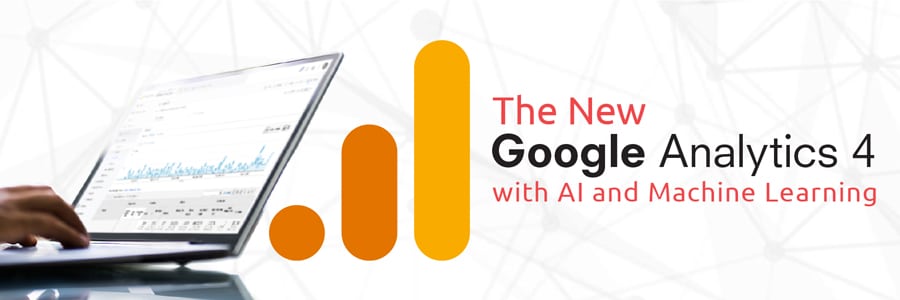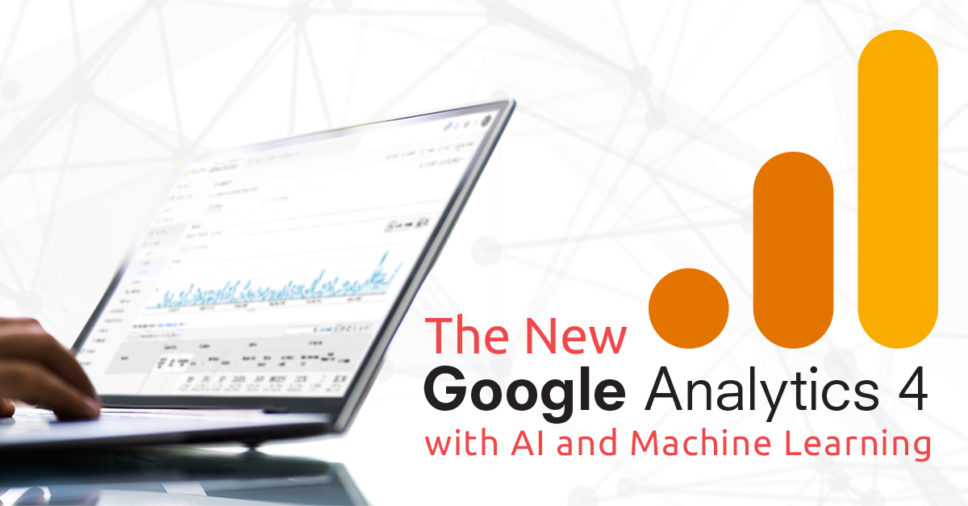
Collecting Actionable Marketing Data in 2021
Welcome to “What’s Poppin’?” Today, we’re looking at two specific trends impacting marketing in 2021 and Google’s response to both.
#1. Cross-device behavior
#2. Data privacy
Enter Google Analytics 4
As we move into the future, operating systems, browsers and websites will use these tools and other extensions to block data sharing. Google’s old platform, Universal Analytics, relies only on the data it collects, which is getting more difficult.
According to Acxiom, part of the Interpublic Group, 96% of marketers agree that connecting data across channels and technology platforms is critical to their marketing success.
Analytics 4 uses artificial intelligence and machine learning to fill in the gaps caused by the growing portion of users who use tools to restrict the data that they share.
As a business leader, why should I care about this?
According to W3Techs, Google Analytics is being used by 52.9% of all websites, more than 10 times the next most popular analytics option. That’s estimated to be between 30 million to 50 million installations.
Most digital campaigns are optimized for “conversions.” Conversions are user actions like buying something, submitting a lead generation form, adding an item in a shopping cart, making a phone call, viewing a specific page, etc. Encouraging users to take these actions is the bedrock method of measuring the success or failure of a campaign.
When setting up a Facebook, Instagram or Google Ads campaign, the first thing to do, other than entering payment information, is to “Define your conversion objective.” That is actually the question “What are you trying to accomplish and how are you measuring it?” Google Analytics Universal is the most popular method to collect, measure and report on the results.
Should we Start Using Google Analytics 4?
The answer is yes, but… G4 is a work in progress, with a steep learning curve. G4’s machine learning requires a massive amount of combined data.
Adding G4 data tracking to your infrastructure now may provide a competitive advantage in the future as the gaps in data grow. You can gather data in G4 now and make a reporting switch 12, 18, or 24 months from now.
Is Universal Analytics going away soon?
Can I just flip a switch and change from Universal Analytics to G4?
I have a new website. What should I do?
Is Analytics 4 that different?
I think so. The new analytics automatically tracks click, file download, session start, user engagement, video complete, etc. as events.
While this seems great in theory, pulling out the metrics that matter to your business as conversion goals or dashboard reports is not as intuitive as Universal Analytics.
Anything else I should know about these two trends?
Apple is about to roll out an update to its iOS 14 operating system that prompts users to give apps permission to track their activity across other apps and the web. That change may seem small, but Facebook derives a significant percentage of its $80 billion-plus in revenue from targeted ads on Apple platforms. Facebook is throwing a fit.
Is this a big deal? The Harvard Business Review says Facebook is overreacting. "These customers would have generated high revenues anyway," the Review found. "That's why they were targeted in the first place. So it would be a mistake to conclude that these customers spent more because of the personalized ads." This goes against the 2020 trend of “personalized experiences” but is full throttle with the 2021 trend to “prioritize and know your audience first before defining your brand.”
Facebook Tracking Update
If you are using WordPress and running Facebook conversion campaigns, please check your Facebook Pixel insertion method.
The most popular plugin used for this purpose, the Facebook for WordPress Plugin, has a security issue that was announced on March 25, 2021. If you are using this plugin, please update it ASAP.

Craig Hadley
The Creative Company
Content Experience Analyst
